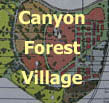|
|
Comment to the Coconino
Board of Supervisors: Submitted by Dennis
Foster |
|
|
|
||
|
I have been involved in this
process, albeit as an outsider from those that have been making decisions
in this regard, for a number of years now.
I have helped the various parties that were excluded from the
Forest Service analysis put together three evaluations of the possible
economic impacts that might be expected to result from the CFV project.
If you are interested in the issue of these impacts, I would refer
you to the report, “An Evaluation of Alternative H from the Tusayan
Growth EIS” which I co-authored last spring.
It is succinct and, I believe, quite readable.
Should you desire to investigate this matter further, I would be
happy to participate in any way possible. I have no particular vested
interest in this case and I do not come to speak to you in any official
capacity. Although I will refer a bit to these economic impacts, I want
to address you tonight as a citizen, pretty well informed about this
topic, with some concerns over what I think are very fundamental issues. There are some very
important questions raised by this case, that I believe will be relevant
to your decision. In some ways, this is ironic, in that the process has moved
from the federal level to the local level, and these questions have yet to
be answered. In the Planning
and Zoning hearings Mr. Gammage maintained that they should keep focused
on their task, and that it would be inappropriate to consider bigger
issues. I agree with his view
on this. But, now we are
before a different body. As
members of the Board of Supervisors, elected by the citizens of Coconino
County, your role is less restrictive.
Your job, in a word, is to be leaders.
I have been impressed by your careful attention to this case and
trust that your decision will be based on the facts, as well as on what is
fair and just for the people you represent. I have looked rather closely
at Mr. Towler’s report and I have given a great deal of thought to the
findings you are compelled to make in order to grant the zone change asked
for by the applicant. Among
your concerns, and mine, are “public welfare” and the effects on
“adjacent properties”. I am also interested in the convenience and comfort issues,
especially as they relate to tourists, and am not convinced that either
are met, but a lengthy discussion is beyond the scope of my brief remarks
to you tonight. When you get right down to it, the primary function of zoning is the protection of property rights. My neighbor can’t unilaterally decide to start raising chickens—I do live in the city. And, that is because this would adversely affect my rights, and those of my neighbors. We all know that. This protection is
especially relevant to the “public welfare” issue.
We need to have a set of rules that are easily understood and fair
in order to be able to make appropriate decisions about what to do with
our property in a way that maximizes the enjoyment we can get from it. In the case of Canyon Forest
Village, the federal government has decided to give away some of its land.
The land is not for sale to anyone who wants to buy it.
It is being made available to only one party—CFV.
And, the federal government gave CFV two key locational
advantages—it is closer to the park than all of the other Tusayan
properties and it will blend into the transit center envisioned by the
park. This latter point bears some
consideration. Supervisor
Chabin asked some probing questions last week about whether or not the
transit center needs CFV. Mr.
Traver answered that it did not. Let
us pose the question the other way around:
Does CFV need the transit center?
I think the answer is, “Most definitely!”
Consider one way in which CFV benefits here.
Many visitors come to the Grand Canyon without having made advanced
lodging reservations. With
CFV right next to the transit center, where all visitors must stop, I
would suspect that, by and large, the lion’s share of these visitors
would go to CFV. Tusayan
business owners lose because of this decision and Mr. Towler calls it
“competition”. I call it
something else, but I’ll keep that to myself. I have heard many people
talk about what is and what is not appropriate for the Grand Canyon.
I have yet to hear anyone comment on the appropriateness of this
rearrangement of economic outcomes as a matter of government policy. Now, you may decide that it is an issue beyond your concern
in this case, but I would argue that your interest in the public welfare
and the protection of property rights are well bound up in this matter. I would contend that how green CFV is, how many acres are given to the school and to the Park Service, how many churches are to be built and how big the community center will be are not where you should start in deciding this matter. Rather, the question that I hope you would place foremost in your decision is this: Do you, as a matter of policy, believe that it is appropriate to change the zoning for these 272 acres in a way that validates the notion that the federal government should pick the economic winners and economic losers in Coconino County? I suggest that the answer should be “No.” |
||
|
|
||
|
|
||

